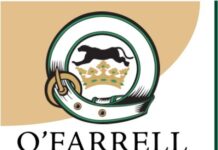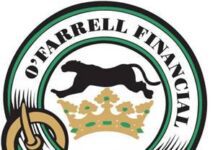by Sarah Chisholm,
Financial Advisor, O’Farrell Wealth & Estate Planning | Assante Capital Management Ltd.
In the investing world, acronyms abound: RRSP, crypto, RESP, ETF, RRIF, TFSA, GIC. Grab your favourite cup of tea or coffee and let us review the meanings behind the acronyms. Let us start with the names for different investment accounts. Each investment account has different tax implications.
RESP stands for Registered Education Savings Plan. A RESP is an account that parents or grandparents use to save for their child or grandchild’s education costs. The government provides incentives in the form of education grants and bonds to encourage contributions. When the funds are withdrawn for education, a portion of the withdrawal comes out tax free while other portions are taxable to the child attending school.
A RDSP (Registered Disability Savings Plan) is an investment account to help those who are eligible for the disability tax credit to save for retirement. Again, the government incentivizes in the form of bonds and grants to encourage contributions. There are special tax considerations and withdrawal parameters when the money is withdrawn in retirement.
When we look specific to retirement there are two buzz word investment accounts – RRSPs and RRIFs. The RRSP allows you to save for retirement. When you make deposits, you receive a contribution receipt that enables you to deduct that amount from your income and pay less tax in the year you contribute. The investments in the RRSP grow tax deferred until the account is converted to a RRIF, a Registered Retirement Income Fund. When you hit retirement, you stop “saving” and you start drawing an “income”. The money you withdraw from a RRIF is taxable. There is a minimum annual withdrawal, and you must convert to a RRIF by age 71.
A great multi-purpose account is the TFSA (Tax Free Savings Account). Depending on your financial planning strategy, you might use this account to save for retirement, a home renovation, or other goals. With a TFSA you invest after-tax dollars. There is no tax on any of the growth and when you withdraw the money it comes out tax free. In comparison a Non-Registered or Open account does not get any of the tax benefits. You invest after-tax money and any dividends, interest, or realized capital gains that you earn in a year must be reported on your taxes.
Recently the Federal Government announced plans to create a home buyers Tax Free Savings Account. Details on this account will be clearer closer to the January 2023 launch date.
Missing a few buzz words? That’s because exchange traded funds (ETF), mutual funds, stocks, cryptocurrency, guarantee investment certificates (GIC) and many other buzz words are the holdings that can fit into most of the accounts listed above. These holdings allow you to build a portfolio based on sector allocation, geography, or investment philosophy. Look for future articles that where we explain holdings more thoroughly.
We welcome questions so please reach out! See our ad in this week’s North Grenville Times and follow us on Facebook @OFarrellFinancialServicesInc.
Sarah Chisholm is a Financial Advisor with Assante Capital Management Ltd. The opinions expressed are those of the author and not necessarily those of Assante Capital Management Ltd. Please contact her at 613.258.1997 or visit ofarrellwealth.com to discuss your circumstances prior to acting on the information above. Assante Capital Management Ltd. is a member of the Canadian Investor Protection Fund and the Investment Industry Regulatory Organization of Canada.







